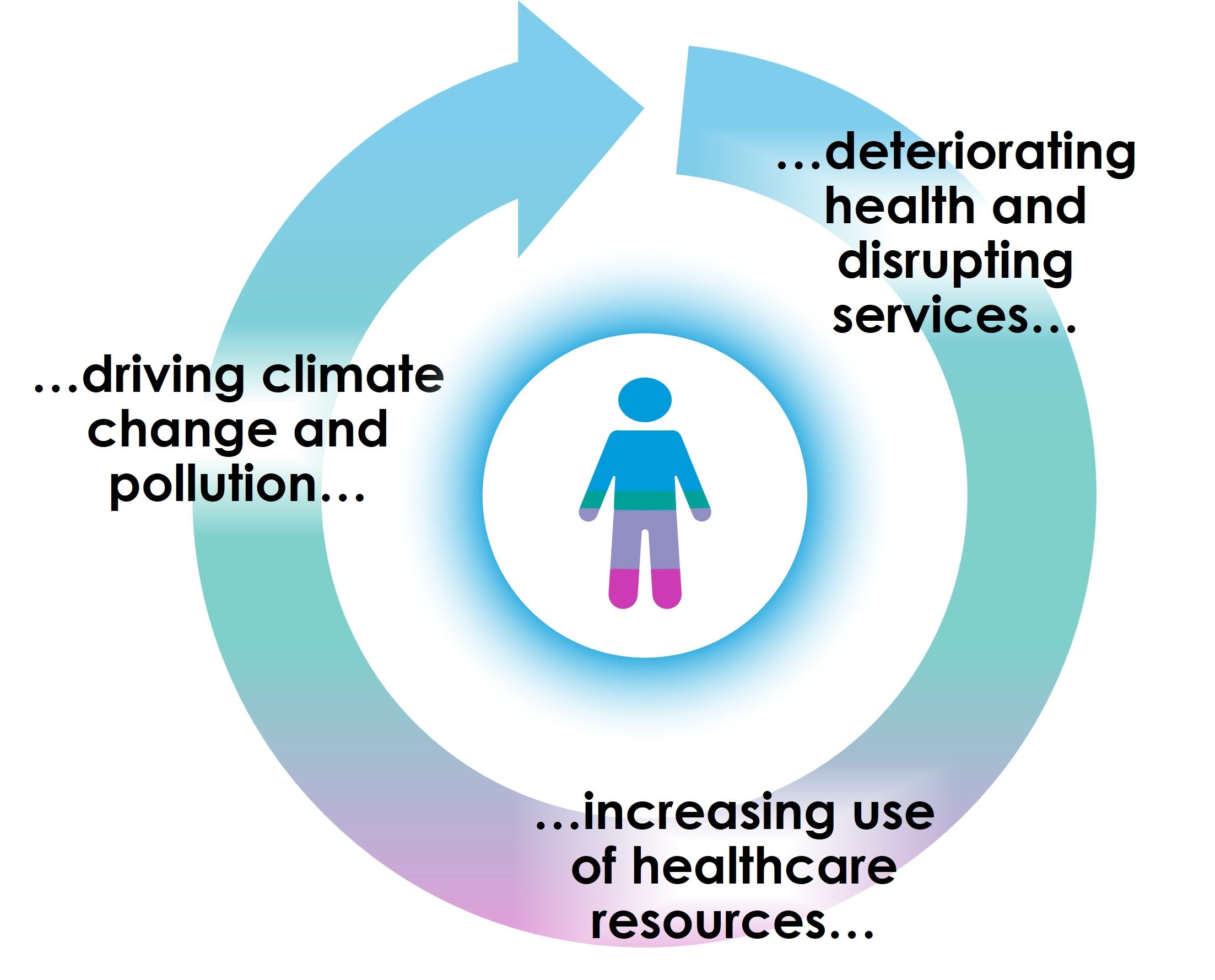People, Places, Planet: BLMK CARES
Improving health and wellbeing in harmony with the environment
We have no choice but to act.
According to the World Health Organisation “climate change is the single biggest health threat facing humanity“.

Healthcare services generate emissions and pollution, which drives climate change and environmental degradation. This impacts on our health and disrupts services, leading to greater use of healthcare resources.
If we are to succeed in our goal to increase the number of years people spend in good health and reduce the gap between the healthiest and least healthy in our community, we must improve health and wellbeing, reduce emissions and pollution, and become more resilient to the impacts of climate change.
BLMK healthcare partners and residents have co-developed our new “Green Plan”, which sets out our vision for People, Places, Planet:
People: We will improve health and wellbeing, reduce health inequalities, and help our communities adapt to climate change
Places: We will care for our surroundings, supporting the regeneration of the natural environment, and reduce pollution from health and care services.
Planet: We will reduce healthcare-associated greenhouse gas emissions.
BLMK CARES: The ICS Green Plan

Through our work with staff, partners and residents we have created a detailed plan of activities for the coming years, divided into four themes, showing that BLMK CARES about sustainable healthcare. To find out more about our plans for Culture, Adaptation, Resources and Environmentally Sustainable services, visit the dedicated page for the development of the Green Plan 2025-2032, or click the links above.
The final version of the Green Plan will be available here soon.
We need all staff to contribute to improving environmental sustainability and working towards net zero – it’s part of our work and will help us achieve a better healthcare system. We also welcome support and involvement of our residents and patients.
If you have any suggestions or queries about our ICS Green Plan and what we’re doing as a health and care system about environmental sustainability, please contact BLMKICB.sustainability@nhs.net.
Our NHS and partner organisations are all committed to working together to achieve net zero. Expand this section for links to sustainability pages on our partners’ websites
- Bedfordshire Hospitals (BHFT)
- Cambridgeshire Community Services (CCS)
- Central and North West London (CNWL)
- East London (ELFT)
- East of England Ambulance Service (EEAST)
- Milton Keynes University Hospitals (MKUH)
- Our local authorities are also committed to environmental sustainability – visit their respective sites for more information

